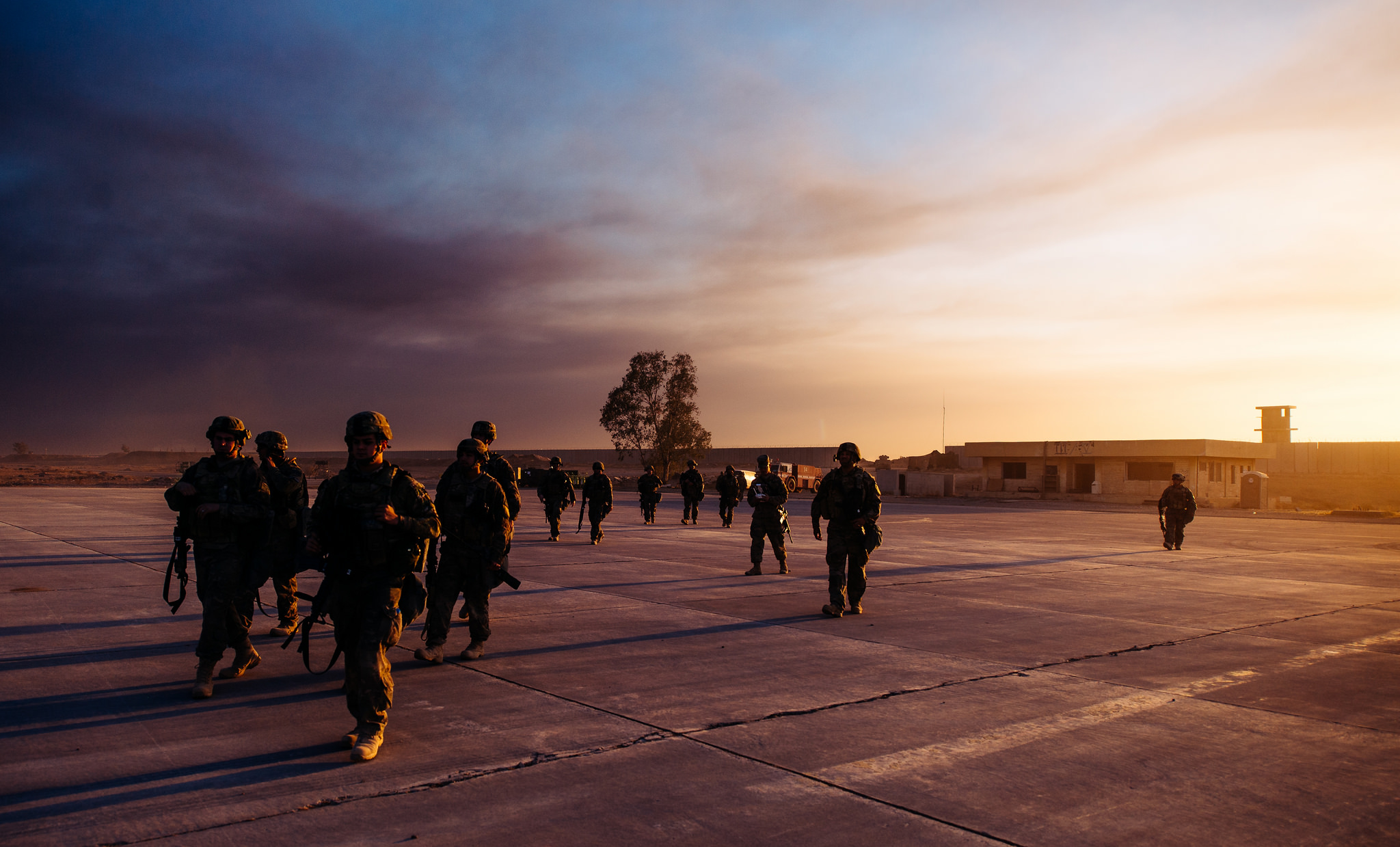
Twenty-one years ago today, the United States committed its worst foreign-policy mistake in generations: invading Iraq to overthrow Saddam Hussein, the despot who ruled the Arab country with an iron fist for nearly a quarter-century. The entire operation was supposed to be a “cakewalk,” in which the mighty U.S. military, stocked with the best technology and weapons the world had to offer, would pummel a decrepit Iraqi army that was hobbled by international sanctions for the better part of a decade.
The mood at the time was serious but stoic. Donald Rumsfeld, the U.S. defense secretary, argued that the entire war wouldn’t last more than five months. Rumsfeld’s deputy, Paul Wolfowitz, testified to Congress that the invasion would be cheap due to Iraq’s substantial oil revenues, which would magically pay for the conflict. Ditto Richard Perle, the chair of the Pentagon’s Defense Policy Board, who said matter-of-factly that Iraq “can largely finance the reconstruction of their own country.”
Americans were led to believe that Saddam was a suicidal maniac who allied with al-Qaeda to kill Americans and clamoring for a nuclear weapon to explode in an American city. Vice President Dick Cheney hinted that Saddam was in cahoots with al-Qaeda despite what the U.S. intelligence community assessed at the time—and President George W. Bush would spend months leading up to the war scaring the bejesus out of the American people. “Iraq could decide on any given day to provide a biological or chemical weapon to a terrorist group or individual terrorists,” Bush said during a speech in October 2002.
History demonstrated long ago how foolish those confident predictions and talking points were. With the exception of the Iraqi army’s collapse after a few weeks, all of them turned out to be sheer nonsense. Saddam gave up on his nuclear ambitions after the 1991 Gulf War, and as author Steven Coll amply explores in his new book, The Achilles Trap, Saddam’s regime was toying with international inspectors not because he had weapons of mass destruction but rather because he was paranoid about U.S. spies infiltrating the inspectors’ ranks. The U.S. spent trillions of dollars on the war and is still paying for it due to the tens of thousands of U.S. troops who were grievously injured. The U.S. invasion broke Iraq’s social construct: with the dictator now gone, the country’s oppressed majority Shia population were now free to take matters into its own hands, scooping up an ever greater amount of political power for itself.
More on Middle East

Featuring Rosemary Kelanic
March 2, 2026

Featuring Rosemary Kelanic
March 2, 2026

Featuring Benjamin Friedman
March 2, 2026

Featuring Rosemary Kelanic
March 1, 2026
Events on Middle East





